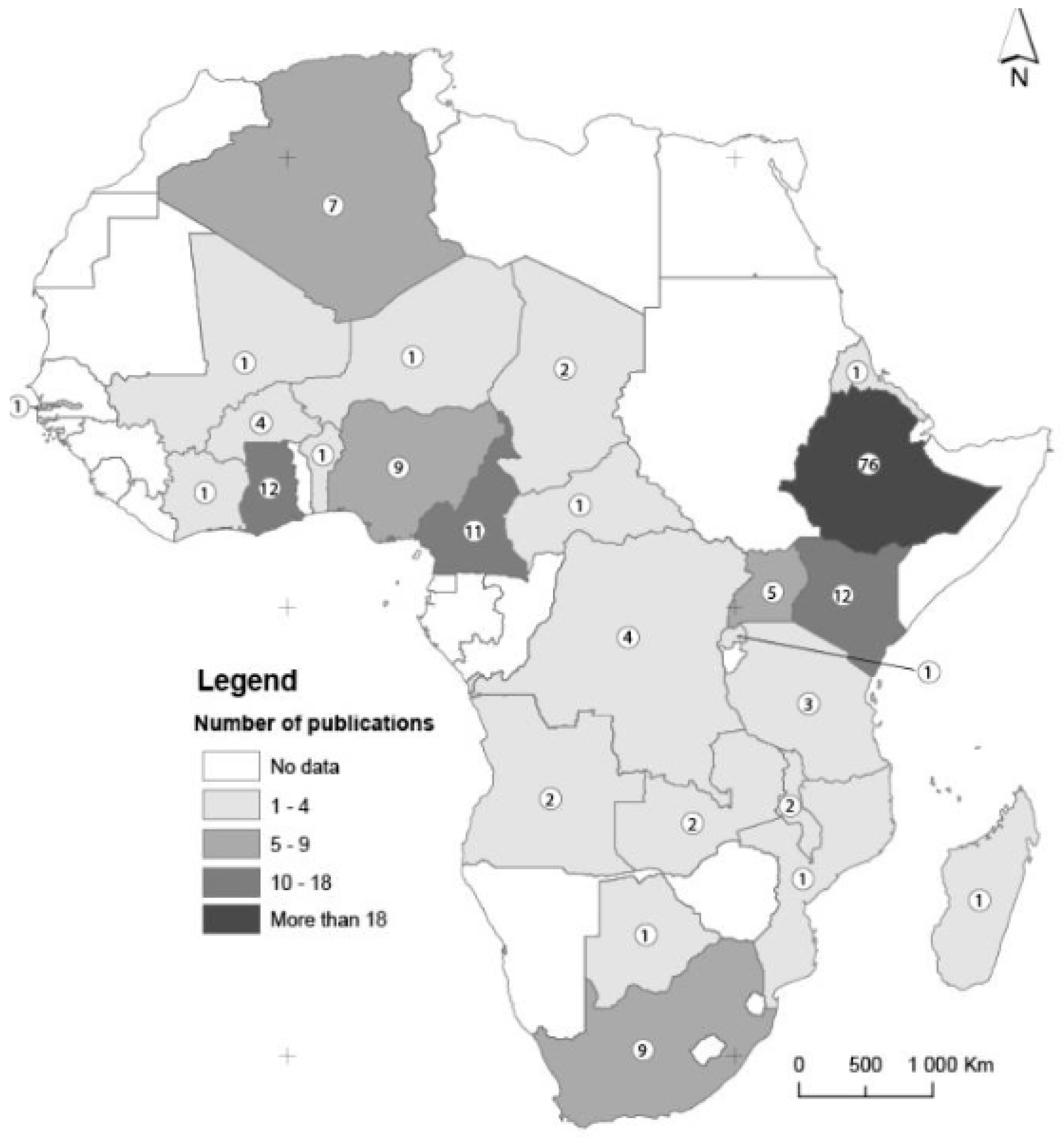
- Title: Antimicrobial Resistance in the WHO African Region: A Systematic Literature Review 2016–2020
- Category: Public Health
- Researchers: Laetitia Gahimbare, Claude Mambo Muvunyi, Nathalie Aya Kouadio Guessennd, Jean Pierre Rutanga, Pierre Gashema, Walter Fuller, Ambele Judith Mwamelo, Sheick Oumar Coulibaly, Fausta Shakiwa Mosha, Olga Perovic, Hassiba Tali-Maamar and Ali Ahmed Yahaya.
- Publication Year: 2024
Abstract
first_pagesettingsOrder Article Reprints Open AccessSystematic Review Antimicrobial Resistance in the WHO African Region: A Systematic Literature Review 2016–2020 by Laetitia Gahimbare 1,*ORCID,Claude Mambo Muvunyi 2,3,Nathalie Aya Kouadio Guessennd 2,4,Jean Pierre Rutanga 5,Pierre Gashema 6,7,Walter Fuller 1ORCID,Ambele Judith Mwamelo 1,Sheick Oumar Coulibaly 1,Fausta Shakiwa Mosha 1,Olga Perovic 8ORCID,Hassiba Tali-Maamar 9 andAli Ahmed Yahaya 1ORCID 1 World Health Organization Regional Office for Africa Cité du Djoué, Brazzaville P.O. Box 06, Congo 2 AMR Consultants, Kigali P.O. Box 3286, Rwanda 3 Rwanda Biomedical Center, Kigali P.O. Box 7162, Rwanda 4 UFR des Sciences Médicales, Université Félix Houphouet Boigny-Institut Pasteur de Côte d’Ivoire, Abidjan P.O. Box, 1563, Côte d’Ivoire 5 CHU de Québec-Université Laval, L’ Hôtel-Dieu de Québec, Laboratoire de Microbiologie, Québec City, QC G1R 2J6, Canada 6 Repolicy Research Centre, Kigali P.O. Box 7584, Rwanda 7 College of Medicine and Veterinary Medicine, The University of Edinburgh, Edinburgh EH8 9YL, UK 8 WHO Collaborating Centre for AMR, National Institute for Communicable Diseases (NICD), a Division of National Health Laboratory Service, Johannesburg 2192, South Africa 9 Institut Pasteur d’Algerie, Algiers P.O. Box 16000, Algeria * Author to whom correspondence should be addressed. Antibiotics 2024, 13(7), 659; https://doi.org/10.3390/antibiotics13070659 Submission received: 11 April 2024 / Revised: 15 May 2024 / Accepted: 17 May 2024 / Published: 17 July 2024 (This article belongs to the Special Issue Surveillance and Optimization of Antibiotics Usage) Downloadkeyboard_arrow_down Browse Figures Versions Notes Abstract Antimicrobial resistance (AMR) is a significant global public health threat. This review presents the most recent in-depth review of the situation of the main AMR types in relation to the most commonly prescribed antibiotics in the World Health Organization (WHO) African Region. Underlying genes of resistance have been analyzed where possible. A search to capture published research data on AMR from articles published between 2016 and 2020 was done using PubMed and Google Scholar, with rigorous inclusion/exclusion criteria. Out of 48003 articles, only 167 were included. Among the tested gram-negative bacteria species, Klebsiella spp. remain the most tested, and generally the most resistant. The highest overall phenotypic resistance for imipenem was reported in E. coli, whereas for meropenem, E. coli and Haemophilus spp. showed an equal resistance proportion at 2.5%. For gram-positive bacteria, Streptococcus pneumoniae displayed high resistance percentages to trimethoprim/sulfamethoxazole (64.3%), oxacillin (32.2%), penicillin (23.2%), and tetracycline (28.3%), whereas Staphylococcus aureus contributed to 22.8% and 10% resistance to penicillin and oxacillin, respectively. This review shows that AMR remains a major public health threat. The present findings will help public health decision-makers in developing efficient preventive strategies and adequate policies for antibiotic stewardship and surveillance in line with the global action plan for AMR.
See more
